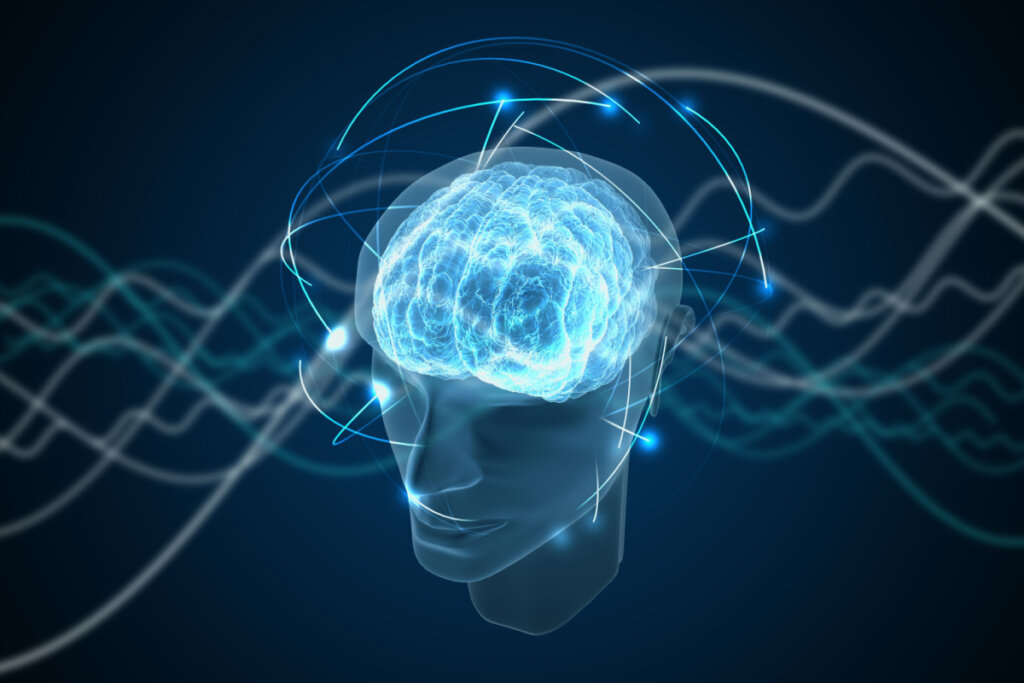Is it Possible to Erase Painful Memories? Science Has the Answer


Written and verified by the psychologist Valeria Sabater
In your mental universe, you harbor certain images that you don’t want to remember. They’re territories of pain and suffering that you never want to experience again. In fact, traumatic memories in the brain are common and the origin of much unrest.
No doubt you’d think it’d be fabulous to be able to hit a delete button and eliminate whatever it is that’s disturbing you and hindering your well-being. Indeed, although you’re often told that you learn from your mistakes and that what doesn’t kill you makes you stronger, in reality, there are some experiences that are simply too painful. Hardly surprising then, that you prefer to avoid them.
The field of psychology and neuroscience knows that it isn’t always easy to integrate traumatic memories. Consequently, you tend to suppress, displace, and hide them under that deep rug that’s your mind. However, this isn’t a particularly useful strategy, because it causes mental health problems in the long term.
For this reason, for years, science has tried to establish how to erase painful memories. As a matter of fact, we already know what neural processes would be involved in this process.
“Being able to forget is the foundation of sanity. Incessantly to remember, means obsession, lunacy.”
-Jack London-

The neural pathway that erases memories
The European Molecular Biology Laboratory (EMBL) in Italy discovered a revealing piece of evidence that they published in the journal, Nature. Up until that point, they knew that the hippocampus was the key region for memory processing. That said, it wasn’t clear via which mechanisms the memory is established and certain information is erased.
It’s important to remember that your brain is constantly deleting information. In fact, you need to forget to remember. This maximizes your cognitive efficiency. For example, when you acquire learning and register new information, you must delete the previous information to maintain an updated mental approach.
Indeed, to gain mental agility, you have to eliminate the whole tangle of data, sensations, facts, and unimportant day-to-day conversations. Science has long sought to understand the cellular mechanisms that underlie the decisive task of erasing or forgetting information.
The Npy1 receptor in the dentate gyrus of the hippocampus could be the key to the promotion of selective memory erasure.
The dentate gyrus and its granule cells
The above-mentioned exploration discovered that the hippocampus contains three neural circuits: the dentate gyrus and the CA3 and CA1 areas. These regions, through synaptic connections, make memory strong or weak.
The researchers conducted various genetic engineering experiments on these structures. In experiments with mice, they inhibited the granule cells in the dentate gyrus. The results couldn’t have been more striking. They discovered that the animals had forgotten their long-established learning.
The researchers discovered that the neural pathway that erases memories is the dentate gyrus. More specifically, the Npy1 cell receptor. When they developed a synthetic peptide that stimulated this receptor, induced memory loss occurred.
The therapeutic purpose of information about the neural pathway that erases memories
This data is both revealing and fascinating. So, what therapeutic applications might its discovery have? The researchers suggested that, in the future, a drug might be designed that would activate Npy1 receptors, thus removing certain traumatic memories.
This psychoactive drug could be useful for patients suffering from post-traumatic stress disorder. Later, through virtual reality, they’d be exposed to the adverse event to gradually erase said memory or adverse emotional imprint. That’s the idea.
That said, it’s an extremely complex mechanism. Indeed, designing a synthetic substance capable of carrying out this mechanism in human models is a delicate and challenging step.

At present, it’s not yet possible to erase memories
It’s true that we now know of the existence of a neural pathway that erases memories. However, any attempts carried out with this purpose have, to date, been unsuccessful. In 2020, the Leuven Brain Institute (Belgium) published a study on the subject. Their goal was to replicate other research (Schiller et al, 2010) that appeared to have been successful.
But, they couldn’t do it. In fact, after four years of effort, it proved impossible to achieve a memory wipe effect. Therefore, science is cautious in this regard. They know that the process will be extremely slow and meticulous. As a matter of fact, there’s no solid basis that such a strategy will ever be achieved. That said, it’s clear that many scientists are set on making this arduous neurological journey.
Painful memories should be treated in psychological therapy so the patient learns to live with them without hurting. To delete them is to eliminate a part of their history and of who they are.
Final reflection: would forgetting allow us to live better?
No doubt you’d like to be completely immune to pain and adversity. However, this is an impossible dream. After all, we all have to go through difficult experiences at some point in our lives. All you can do is cope with them as best you can, with the strategies, tools, and experiences you have at your disposal.
Painful memories make up episodic memory. These are the bricks that build personal history and, in turn, a good part of your conscience. Although the existence of the neural pathway that erases memories has been established, we don’t know what its effects might be. Moreover, eliminating those painful experiences from your memory would also dilute a part of who you are.
The painful experiences of yesterday challenge you and prompt you to make new decisions and take new paths. Instead of erasing them, it’s preferable to face them and make them hurt less. You have to turn them into scars that no longer sting when touched, into healed wounds that don’t harbor pain inside. In effect, you need to accept them and move forward.
In your mental universe, you harbor certain images that you don’t want to remember. They’re territories of pain and suffering that you never want to experience again. In fact, traumatic memories in the brain are common and the origin of much unrest.
No doubt you’d think it’d be fabulous to be able to hit a delete button and eliminate whatever it is that’s disturbing you and hindering your well-being. Indeed, although you’re often told that you learn from your mistakes and that what doesn’t kill you makes you stronger, in reality, there are some experiences that are simply too painful. Hardly surprising then, that you prefer to avoid them.
The field of psychology and neuroscience knows that it isn’t always easy to integrate traumatic memories. Consequently, you tend to suppress, displace, and hide them under that deep rug that’s your mind. However, this isn’t a particularly useful strategy, because it causes mental health problems in the long term.
For this reason, for years, science has tried to establish how to erase painful memories. As a matter of fact, we already know what neural processes would be involved in this process.
“Being able to forget is the foundation of sanity. Incessantly to remember, means obsession, lunacy.”
-Jack London-

The neural pathway that erases memories
The European Molecular Biology Laboratory (EMBL) in Italy discovered a revealing piece of evidence that they published in the journal, Nature. Up until that point, they knew that the hippocampus was the key region for memory processing. That said, it wasn’t clear via which mechanisms the memory is established and certain information is erased.
It’s important to remember that your brain is constantly deleting information. In fact, you need to forget to remember. This maximizes your cognitive efficiency. For example, when you acquire learning and register new information, you must delete the previous information to maintain an updated mental approach.
Indeed, to gain mental agility, you have to eliminate the whole tangle of data, sensations, facts, and unimportant day-to-day conversations. Science has long sought to understand the cellular mechanisms that underlie the decisive task of erasing or forgetting information.
The Npy1 receptor in the dentate gyrus of the hippocampus could be the key to the promotion of selective memory erasure.
The dentate gyrus and its granule cells
The above-mentioned exploration discovered that the hippocampus contains three neural circuits: the dentate gyrus and the CA3 and CA1 areas. These regions, through synaptic connections, make memory strong or weak.
The researchers conducted various genetic engineering experiments on these structures. In experiments with mice, they inhibited the granule cells in the dentate gyrus. The results couldn’t have been more striking. They discovered that the animals had forgotten their long-established learning.
The researchers discovered that the neural pathway that erases memories is the dentate gyrus. More specifically, the Npy1 cell receptor. When they developed a synthetic peptide that stimulated this receptor, induced memory loss occurred.
The therapeutic purpose of information about the neural pathway that erases memories
This data is both revealing and fascinating. So, what therapeutic applications might its discovery have? The researchers suggested that, in the future, a drug might be designed that would activate Npy1 receptors, thus removing certain traumatic memories.
This psychoactive drug could be useful for patients suffering from post-traumatic stress disorder. Later, through virtual reality, they’d be exposed to the adverse event to gradually erase said memory or adverse emotional imprint. That’s the idea.
That said, it’s an extremely complex mechanism. Indeed, designing a synthetic substance capable of carrying out this mechanism in human models is a delicate and challenging step.

At present, it’s not yet possible to erase memories
It’s true that we now know of the existence of a neural pathway that erases memories. However, any attempts carried out with this purpose have, to date, been unsuccessful. In 2020, the Leuven Brain Institute (Belgium) published a study on the subject. Their goal was to replicate other research (Schiller et al, 2010) that appeared to have been successful.
But, they couldn’t do it. In fact, after four years of effort, it proved impossible to achieve a memory wipe effect. Therefore, science is cautious in this regard. They know that the process will be extremely slow and meticulous. As a matter of fact, there’s no solid basis that such a strategy will ever be achieved. That said, it’s clear that many scientists are set on making this arduous neurological journey.
Painful memories should be treated in psychological therapy so the patient learns to live with them without hurting. To delete them is to eliminate a part of their history and of who they are.
Final reflection: would forgetting allow us to live better?
No doubt you’d like to be completely immune to pain and adversity. However, this is an impossible dream. After all, we all have to go through difficult experiences at some point in our lives. All you can do is cope with them as best you can, with the strategies, tools, and experiences you have at your disposal.
Painful memories make up episodic memory. These are the bricks that build personal history and, in turn, a good part of your conscience. Although the existence of the neural pathway that erases memories has been established, we don’t know what its effects might be. Moreover, eliminating those painful experiences from your memory would also dilute a part of who you are.
The painful experiences of yesterday challenge you and prompt you to make new decisions and take new paths. Instead of erasing them, it’s preferable to face them and make them hurt less. You have to turn them into scars that no longer sting when touched, into healed wounds that don’t harbor pain inside. In effect, you need to accept them and move forward.
All cited sources were thoroughly reviewed by our team to ensure their quality, reliability, currency, and validity. The bibliography of this article was considered reliable and of academic or scientific accuracy.
- Chalkia A, Schroyens N, Leng L, Vanhasbroeck N, Zenses AK, Van Oudenhove L, Beckers T. No persistent attenuation of fear memories in humans: A registered replication of the reactivation-extinction effect. Cortex. 2020 Aug;129:496-509. doi: 10.1016/j.cortex.2020.04.017. Epub 2020 Jun 18. PMID: 32580869; PMCID: PMC7115861.
- Madroñal, N., Delgado-García, J., Fernández-Guizán, A. et al. Rapid erasure of hippocampal memory following inhibition of dentate gyrus granule cells. Nat Commun 7, 10923 (2016). https://doi.org/10.1038/ncomms10923
This text is provided for informational purposes only and does not replace consultation with a professional. If in doubt, consult your specialist.







